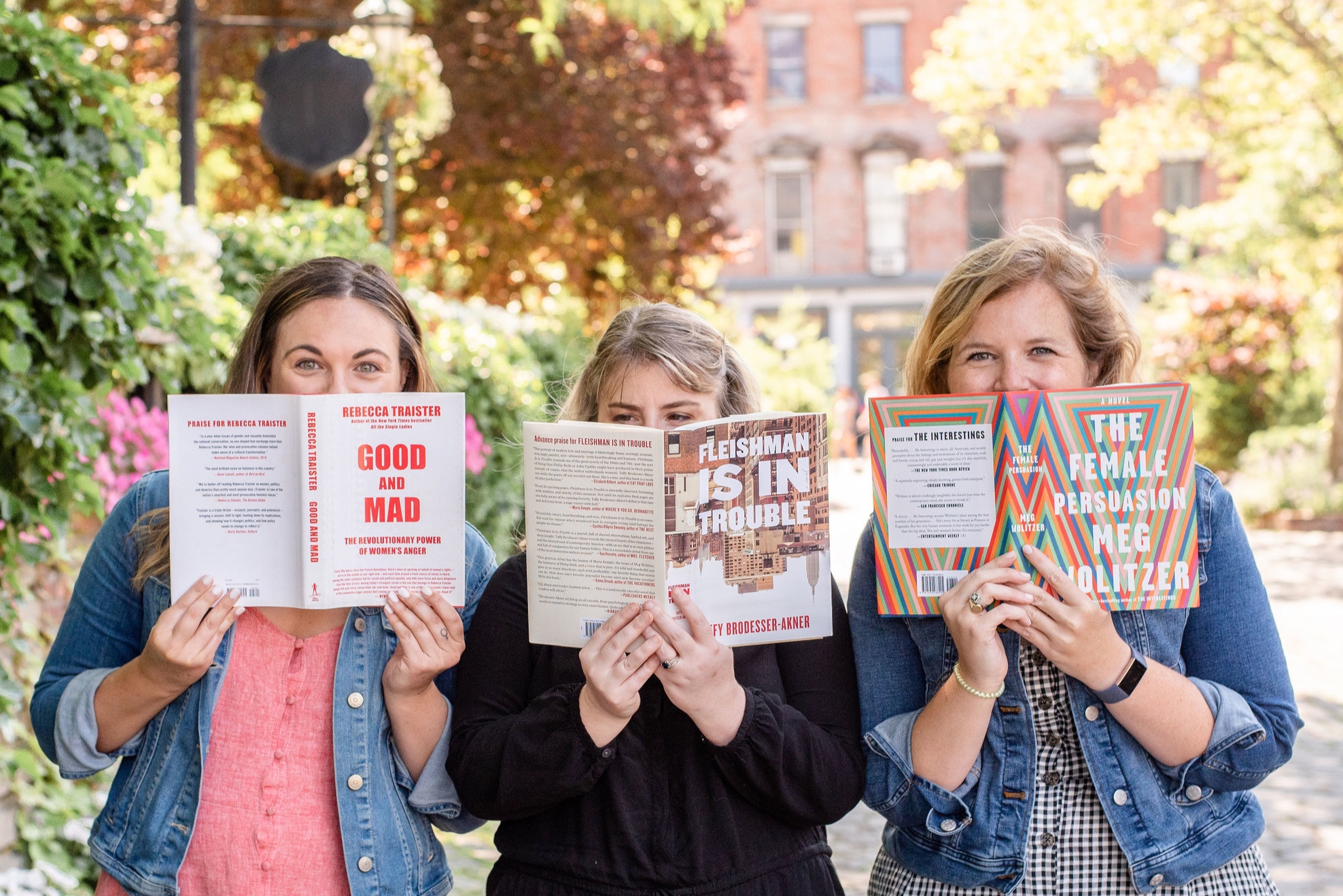Lit Hit List: Feminist Nonfiction
I don’t think it’s any surprise that here at She’s Full of Lit, we all identify as feminists. (Please see my profile photo here on the blog if there was any question.) A lot of the books I’m reading lately have already been reviewed here (“Red, White, and Royal Blue,” “The Only Plane in the Sky,” “Catch and Kill”), so in lieu of a review, here are six nonfiction books I’d recommend for those who want to learn more about modern feminism. (My younger sister can attest.) I’ve listed them in the order I’d recommend reading if you’re just starting out.
1. “When Everything Changed: The Amazing Journey of American Women from 1960 to the Present” by Gail Collins. This was published in 2009, so “present’ is a bit loose here. (It ends with Hillary Clinton’s first presidential run, is what I’m saying.) The basic thesis of this book is that the advent of the birth control pill in the 1960s changed the trajectory of women’s lives. Definitely a great place to start. (I also love Collins’ “America’s Women: 400 Years of Dolls, Drudges, Helpmates, and Heroines.”)
2. “Bad Feminist” by Roxane Gay. A great collection of personal, political essays about everything from Sweet Valley High (I’m an Elizabeth who wishes she was a Jessica, duh) and “The Help” to abortion and “The Bachelor.” This collection will make you realize (if you don’t already), why Gay is one of the most prominent writers in the country right now. A quick read, but a thought-provoking one, and now I’m kind of inspiring myself to reread this one.
3. “Good and Mad: The Revolutionary Power of Women’s Anger” by Rebecca Traister. Traister is one of the preeminent feminist writers in the country right now (read her pieces for New York Magazine!), and this was written after the 2016 presidential election. It doesn’t just focus on 2016, though; Traister takes a historical look at how women’s anger has always been dangerous politically (for men). (I also highly recommend Traister’s book, “All The Single Ladies.”)
4. “We Should All Be Feminists” by Chimamanda Ngozi Adichie. This is basically one essay adapted from Adichie’s TED talk, and is widely known for being sampled by Beyonce in “Flawless.” I’m including it here only because “Americanah” and “Dear Ijeawele, or A Feminist Manifesto in Fifteen Suggestions” are still on my TBR list (I know, I know). Adichie is another powerful feminist writer, and I also want to call out how important intersectionality is—please make an effort to read more than just books by white women. (I say that after admitting I haven’t read her blockbuster, “Americanah.” I am, to paraphrase Jameela Jamil, a work in progress.)
5. “Asking For It: The Alarming Rise of Rape Culture and What We Can Do About It” by Kate Harding. Some fun light reading. This was published in 2015 and I read it during 2016, before the election, when I was sure Hillary Clinton was going to win. Ah, the innocence of youth. Anyway, this book is (somehow) even more timely now than it was then, and Harding examines how our modern culture supports rapist moreso than victims. (See my next recommendation.) But, she does also offer some ideas about what we can do to combat this, so I suppose this isn’t a total downer.
6. “Know My Name” by Chanel Miller. (Read my review here and Elizabeth’s review here.) I’m sure you all are tired of reading about how important we think this book is, but I wanted to include it because I’ve never read anything quite so personal and damning about sexual assault. In addition to her own experiences, Miller ties the problems we have as a society back to the election of admitted sexual assaulter Donald Trump, and police brutality against black people.
Bonus recommendations!
“Nasty Women: Feminism, Resistance, and Revolution in Trump’s America” edited by Samhita Mukhopadhyay. A great collection of essays written post-2016 presidential election. I underlined a lot of passages in this book and then forced my mom and sister to read it.
“Sex Object: A Memoir” by Jessica Valenti. I love Jessica Valenti’s writing (catch her on Medium), and this memoir takes a look at how Valenti’s young life was somewhat defined by male objectification, even as she was oblivious to it (as many of us are).
“Unsportsmanlike Conduct: College Football and the Politics of Rape” by Jessica Luther. i went to a huge football college, and this was depressing as hell. But also necessary as hell.
If you click on one of the links in this article and make a purchase, She’s Full of Lit may receive a small commission. It doesn’t add anything to your price — we promise! Thanks so much for your support.



